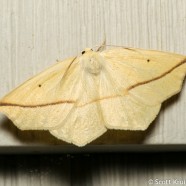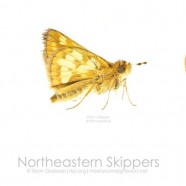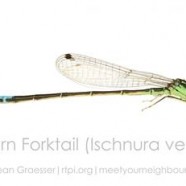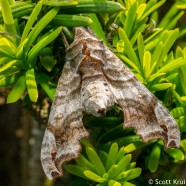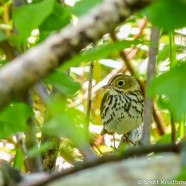Yellow Slant-line
The Yellow Slant-line (Tetracis crocallata) moth falls into the very literally named category, also showing off a couple of fine looking spots. This moth could be hanging out at your porch tonight, and you cannot find them if you do not look. Give it a go!
Read MoreNortheastern Skippers
Sean calls them the sparrows of the butterfly world, and those little brown skippers can be quite a difficult group of butterflies to identify. He plans on spending some time this year trying to photograph as many species of skippers as possible for identification keys. It’s also a good exercise for him to sharpen his own ID skills with them. Photographed by RTPI Affiliate Sean Graesser for the Meet Your Neighbours global biodiversity project in Connecticut and New Jersey for the Roger Tory Peterson Institute of Natural History.
Read MoreEastern Forktails
One of the first spring damselflies to be seen, and one of our most abundant: The Eastern Forktail (Ischnura verticalis). As you can see the males and females can show a variety of coloration. Sean loves seeing fields and areas with water just filled with these jewels of all different colors. Photographed by RTPI Affiliate Sean Graesser for the Meet Your Neighbours global biodiversity project in Connecticut for the Roger Tory Peterson Institute of Natural History.
Read MoreLettered Sphinx
This is a Lettered Sphinx (Deidamia inscriptum) moth, resting out of the way on a warm and sunny spring day. It probably looks like a dead or decaying leaf to predators with jagged edges and all of that brown.
Read MoreOvenbird
Those Ovenbirds (Seiurus aurocapilla) will soon be crafting their ovens on the forest floor, filling them with eggs and keeping a very low profile when near this home. This leaf-covered little dome nest is certainly what gave them their name. I’m glad it was not TEACHER-TEACHER-TEACHER instead! Scott Kruitbosch Conservation & Outreach Coordinator
Read More



